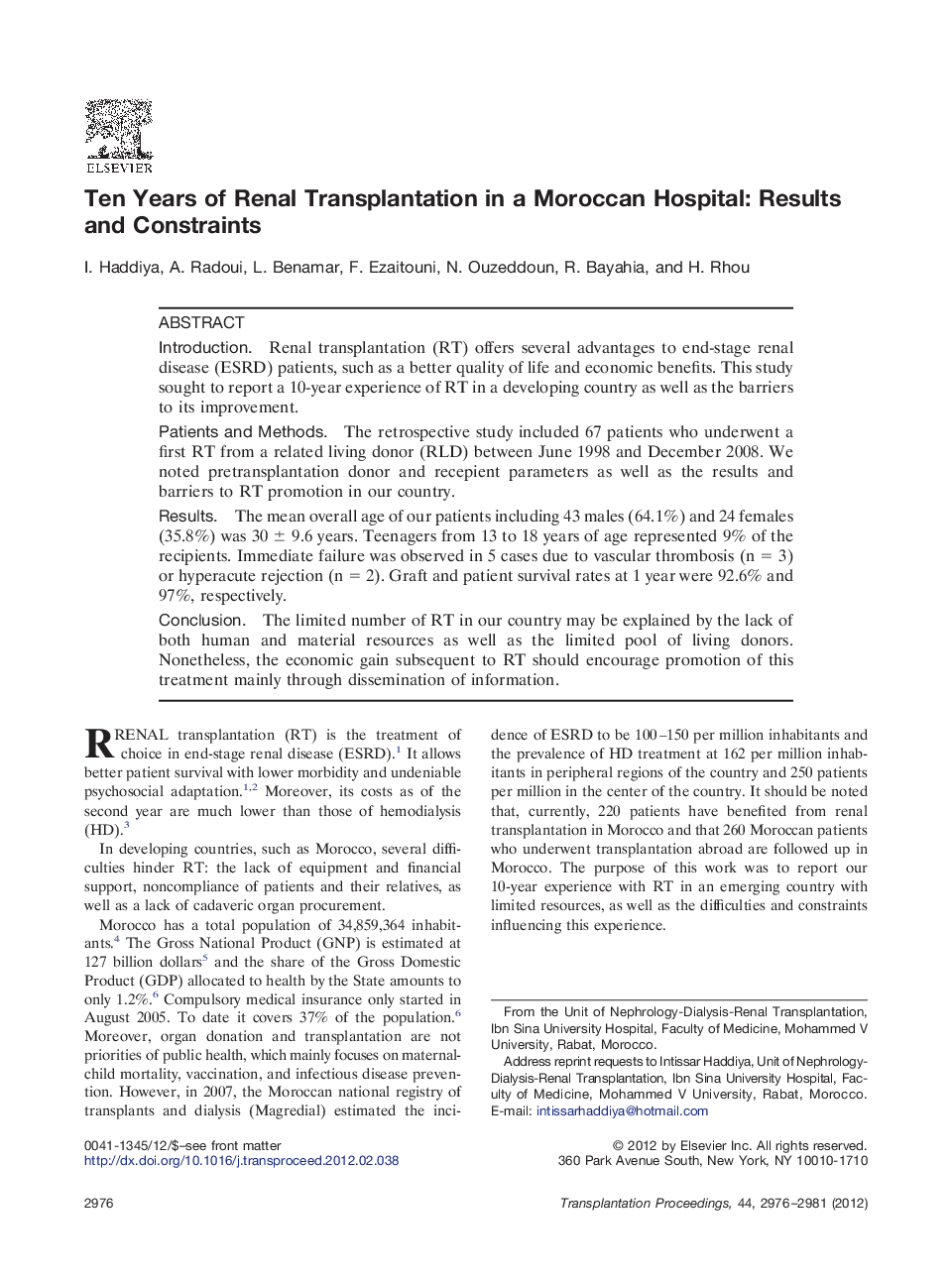| Article ID | Journal | Published Year | Pages | File Type |
|---|---|---|---|---|
| 4256218 | Transplantation Proceedings | 2012 | 6 Pages |
IntroductionRenal transplantation (RT) offers several advantages to end-stage renal disease (ESRD) patients, such as a better quality of life and economic benefits. This study sought to report a 10-year experience of RT in a developing country as well as the barriers to its improvement.Patients and MethodsThe retrospective study included 67 patients who underwent a first RT from a related living donor (RLD) between June 1998 and December 2008. We noted pretransplantation donor and recepient parameters as well as the results and barriers to RT promotion in our country.ResultsThe mean overall age of our patients including 43 males (64.1%) and 24 females (35.8%) was 30 ± 9.6 years. Teenagers from 13 to 18 years of age represented 9% of the recipients. Immediate failure was observed in 5 cases due to vascular thrombosis (n = 3) or hyperacute rejection (n = 2). Graft and patient survival rates at 1 year were 92.6% and 97%, respectively.ConclusionThe limited number of RT in our country may be explained by the lack of both human and material resources as well as the limited pool of living donors. Nonetheless, the economic gain subsequent to RT should encourage promotion of this treatment mainly through dissemination of information.
